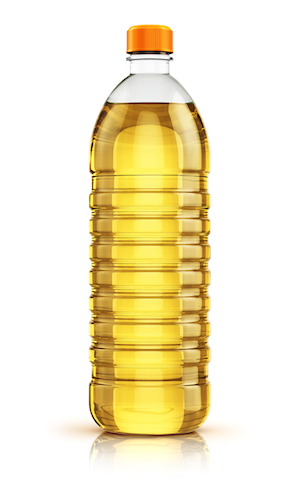Estimated reading time: 12 minutes
In today’s fast-paced world, many of us overlook the powerful connection between what we eat and the way our bodies respond to it. As a chiropractor, I’ve seen how diet plays a pivotal role in managing inflammation – a silent menace to our health. In this post, we’ll delve into three common food toxins you should steer clear of, understanding their role as foods that cause inflammation and the steps to mitigate their impact.
Our healthier ancestors didn’t eat foods that cause inflammation
Human beings started to evolve approximately 2.5 million years ago and up until 10,000 years ago when the agricultural revolution started. During this time chronic illnesses were rare or absent. One of the main reasons why chronic illness was absent was because our ancestors ate nutritious food from the land. So, they ate meat, seafood, vegetables, tubers, fruits, nuts, and seeds. (1) In other words, they didn’t eat food that was refined and packaged up – foods that cause cause inflammation.
So what has made millions of us into fat, sick, and unhealthy people? In short, it’s because most of us live a lifestyle that doesn’t support our genes. And a big part part of an unhealthy lifestyle is eating foods that cause inflammation. In other words, when we eat too many toxic foods like refined flours, refined sugar, and consume large amounts of vegetable oils we are’t giving our genes a healthy environment to work optimally. Eventually, chronic inflammation (swelling) throughout the body results and at some point we are diagnosed with a chronic illness.
Understanding inflammation and food toxins
Before we dive into the specifics of these harmful food toxins, it’s essential to comprehend inflammation’s role in your body. Inflammation isn’t inherently harmful; it’s a natural response to injuries and infections. However, chronic inflammation, often unnoticed, can trigger a cascade of health problems, making it a silent but dangerous adversary. And food toxins are foods that cause inflammation.
What is a food toxin and how it slowly causes chronic illness?
Anything that enters your body and creates disease or damages tissue would be considered a toxin. We often think of toxins as poisons like pesticides, or heavy metals like mercury, or air pollutants. Even something beneficial to your health like water is toxic at high doses.
Consuming food with toxins usually take their toll on your body over time rather than right away. So, it may not be obvious the food is toxic when you consume low levels of it. However, it will become obvious when you consume the toxic food regularly and over long periods of time. For example, say you have a bite of your bread or sandwich. You may not feel anything abnormal. You continue to eat until the whole sandwich is gone and you still don’t feel anything abnormal. If you continue to eat bread(wheat) day after day like most people do, the effect of the toxins in the bread may slowly create inflammation and damage to your tissues. Symptoms can come on so gradually you may not even notice them until one day they get so bad you do start to notice them. Then you’re diagnosed with a chronic illness. When you eat food that has toxins your risk of getting a chronic illness rises significantly.
And what do most people eat on a daily basis? Refined flour, sugar, and vegetable oils make up more than 50% of the total daily calories consumed by the average person in the industrial world today. (1) Sandwiches, fast food, pastries, muffins, “fancy” sweetened coffee, and pop contain these toxins and are common foods people consume daily. Eating refined flours, sugars, and vegetable oils on a regular basis is a major risk factor for developing chronic illness.
Eating refined flours, sugars, and vegetable oils on a regular basis is a major risk factor for developing chronic illness.
Refined flour: why wheat or gluten are foods that cause inflammation
Cereal grains like wheat, corn, rice, barley, sorghum, oats, and rye have become staples of the North American diet. It’s no wonder people include “whole grains” in their vocabulary when they tell me they eat healthy. But is eating grains really healthy? Do we ever pause to think this mainstream idea of grains being healthy could be wrong?
One of the most toxic components in refined flours and many cereal grains is gluten. I talked about why gluten is so toxic in a previous article, but here are the main points:
- Refined flours are low in nutrients.
- The low amount of nutrients that are in refined flours are hard to absorb.
- Refined flours contain phytic acid which prevents the absorption of minerals like calcium, iron, manganese and zinc.
- Gluten will cause an increase in zonulin (a substance produced in the small intestine) in EVERYONE. Zonulin causes the small intestine to become “leaky” or permeable increasing the chance gluten can get into your blood and cause an immune reaction. (2) The immune reaction involves inflammation. The severity of the reaction depends on the person’s genetics, lifestyle, levels of stress, the health of their gut microbiome, and their general state of health.
Conditions and symptoms linked to gluten intolerance
You don’t have to have the typical digestive symptoms like overt Celiac Disease to know if you react to gluten.(3, 4, 5, 6, 7) Based on observational studies the following conditions and symptoms, to name just a few, have been linked to gluten intolerance:
- Irritable bowel syndrome (gas, bloating, diarrhea, constipation) (8)
- Skin conditions like Keratosis Pilaris (also known as ‘chicken skin’ on the back of your arms) or Dermatitis (9)
- Fatigue, brain fog, or feeling tired (10)
- Depression (11)
- Schizophrenia (12)
- Motor coordination problems (ataxia), dizziness, feeling off balance (13)
- Peripheral neuropathy, myopathy (14)
- Fibromyalgia (15)
- Meniere’s disease (16)
- Insulin resistance and inflammation (17)
- Inflammation, swelling or pain in your joints (18)
- Endometriosis (19)
- Hypothyroidism (Hashimoto’s) (20, 21)
My recommendation for you is to avoid wheat and any food products where it is hidden, completely. And if you don’t want to avoid it completely, I recommend you at least get a blood test called Cyrex Array 3. This test is used to see if your immune system is reacting to gluten and other proteins found in wheat. Sometimes people need to see hard data before they take it seriously.
Vegetable and industrial seed oils are foods that cause inflammation
Now, let’s shift our focus to an often-overlooked adversary: vegetable and industrial seed oils. These oils, seemingly innocent, are commonly used in cooking across the nation. However, they contain an overabundance of omega-6 fatty acids, disrupting the balance with omega-3s and promoting inflammation.
Canola oil was the go to safe cooking oil when I first started to learn about nutrition in school. It has a high smoke point which means it’s less likely to burn and release toxic fumes and chemicals when you cook with it. We learned that it was healthy for us. However, what I have learned in the past five to ten years is an entirely different story.
History of vegetable oils and the omega-6 and omega-3 fatty acid ratio
Our ancestors of over 10,000 years ago ate an abundance of seafood and foods containing omega-3 long chain fatty acids (EPA and DHA), and relatively low amounts of omega-6 seed oils. They consumed omega-6 and omega-3 fats in a ratio of roughly 1:1. (22) Remember they didn’t get the modern day chronic illnesses related to inflammation that we do.
At the onset of the second industrial revolution (approximately 150 years ago) there was a marked shift in the ratio of omega−6 to omega−3 fatty acids in the diet. Omega-6 fatty acid consumption increased at the expense of omega−3 fatty acids (22). This change was due to the start of the modern vegetable oil industry as well as the increased use of cereal grains as feed for domestic livestock. Using cereal grains as feed for domestic livestock changes the fatty acid profile in the meat which is consumed by humans.
As vegetable oil consumption increased during the 20th century we had a rise in the omega-6 to omega-3 ratio from 8:1 in the 1930’s to a ratio of 10:1 by 1985. Today the ratio is anywhere from 10:1 to 20:1 and as high as 25:1 in some individuals. (22, 23, 24)
In short, the consequences of consuming too much vegetable oils (Omega-6 fatty acids) and not enough foods with omega-3 fatty acids is an increase in inflammation. Again, inflammation is a major risk factor in developing chronic illness. (25) Let’s take a closer look on why.
How vegetable and industrial seed oils are toxic and cause inflammation
- Vegetable and industrial seed oils (canola, corn, cottonseed, soybean, safflower, sunflower, sesame) contain high amounts of linoleic acid (LA). Even though your body needs LA from your diet, when LA is consumed in excess it’s harmful. LA oxidizes easily when exposed to heat which creates compounds called OXLAMs. OXLAMs are associated with a variety of diseases like fibromyalgia, non-fatty alcoholic liver disease, atherosclerosis, and heart disease.
- Vegetable oils tend to be high in omega-6 fatty acids which create inflammation in your body. If your diet is typical of the standard North American diet your intake of vegetable and industrial seed oils will exceed your intake of foods (like seafood and grass fed beef) containing omega-3 fatty acids which control inflammation. The low intake of long-chain omega-3 fatty acids like DHA, found only in seafood, not only puts yourself into an inflammatory state, it may also interfere with the function of your brain and nervous system as DHA plays an important role in brain and nerve function.
- Like refined flours industrial vegetable and seed oils are high in calories and low in nutrients.
How to get a healthy amount of omega-6 fatty acids
So how do you make sure you’re still getting omega-6 fatty acids in your diet but not getting too much so you put yourself into a state of inflammation?
- Remember we still need omega-6 fatty acids, but get them from real food like nuts, seeds, pastured meat and other whole foods.
- Limit or avoid your intake of refined vegetable and industrial seed oils. Instead use more nutritious cooking fats like olive oil, coconut oil, ghee, and other pasture raised animal fats. Fats with a higher saturated fatty acid content also tend to have higher smoke points.
- Make sure you are eating enough cold-water fatty fish (salmon, herring, sardines, anchovies, and mackerel) to get enough pre-formed omega-3 fats DHA and EPA. I would recommend three five to six ounce servings of fatty fish per week. This is important for everyone to do for general health, but especially for people that have diets high in omega-6 fats.
- Nut flours are a good substitute for wheat flour when baking, but don’t overdo it. They are easy to overeat and when heated they can oxidize. If you do a lot of baking try switching it up to coconut flour and tapioca flour.
Refined sugar: sweet yet inflammatory
Consuming high amounts of refined sugar and high-fructose corn syrup (HFCS) isn’t healthy for you. Eating too much sugar can lead to weight gain from overeating, insulin resistance, elevated triglycerides, weakened immune system, and behavioural disorders. (25, 26, 27, 28) Refined sugar also has no nutrient value and it disrupts the good gut bacteria you have. Further, the excessive consumption of refined sugars not only affects your waistline but also fuels inflammation within. To make matters worse, hidden sugars in various food products often escape our notice, perpetuating the cycle of inflammation. Here’s a post I wrote on how refined sugar can cause osteoarthritis.
When you’re eating a nutrient dense whole food diet, however, small amounts of sugar and HFCS aren’t that bad for you. However, what most people consider small amounts of sugar is far from the truth.
I ate lots of refined sugar up until my late 20s: cereal with white or brown sugar, cookies, ice cream, toast with peanut butter, and chocolate bars for snacks. Eating this much sugar in the absence of a nutrient dense diet was killing my ability to control my blood sugars. I struggled with the symptoms of hypoglycemia (low blood sugar) for about forty years: mood swings, fatigue, poor sleeps, brain fog, anxiety, and intense sugar cravings. At best, I learned to manage my symptoms in my late 20s by eating better, but cured them when I started eating a Paleo type of diet in my 40s.
Strategies to curb your sugar cravings
I still get sugar cravings albeit less than I used since eating healthier. So if you get sugar cravings start by eating healthier. You will find over time that your sugar cravings will lessen. Here’s a list of strategies I use that I hope help you curb your sugar cravings:
- our cupboards and pantry are void of food high in sugar so it’s hard to cheat when I have cravings
- have a tablespoon of coconut oil to satiate you
- eat a handful of almonds and/or a few tablespoons of almond butter with a few dates
- have a half cup to a cup of berries
- focus on getting good sleeps so you’re appetite is more controlled
- eat healthy 80-90% of the time and allow yourself a cheat day once in awhile
Conclusion
In closing, foods that cause inflammation often hide in plain sight in our daily diets. Refined flours, refined sugars, and vegetable/industrial seed oils are quiet instigators of chronic health problems. The good news is that you have the power to make informed choices, avoiding these inflammatory food toxins and embracing a healthier, inflammation-free lifestyle. If you’re not willing to eat healthier for whatever reasons, begin with eliminating or at least reducing these three food toxins. Remember, your body will thank you for it.
So, it’s time to be vigilant about what you consume. By making conscious choices that promote wellness and avoiding these three food toxins, you can embark on a journey to better health. Your health is your most precious asset, and the decision to say no to these inflammatory foods can be a pivotal step on your path to well-being.





Is olive oil considered a vegetable oil? It’s not on the list of ‘vegetable oils ‘?
Hi Charlie, olive oil is good for you. It’s actually derived from the olive FRUIT.
Dr. Collins